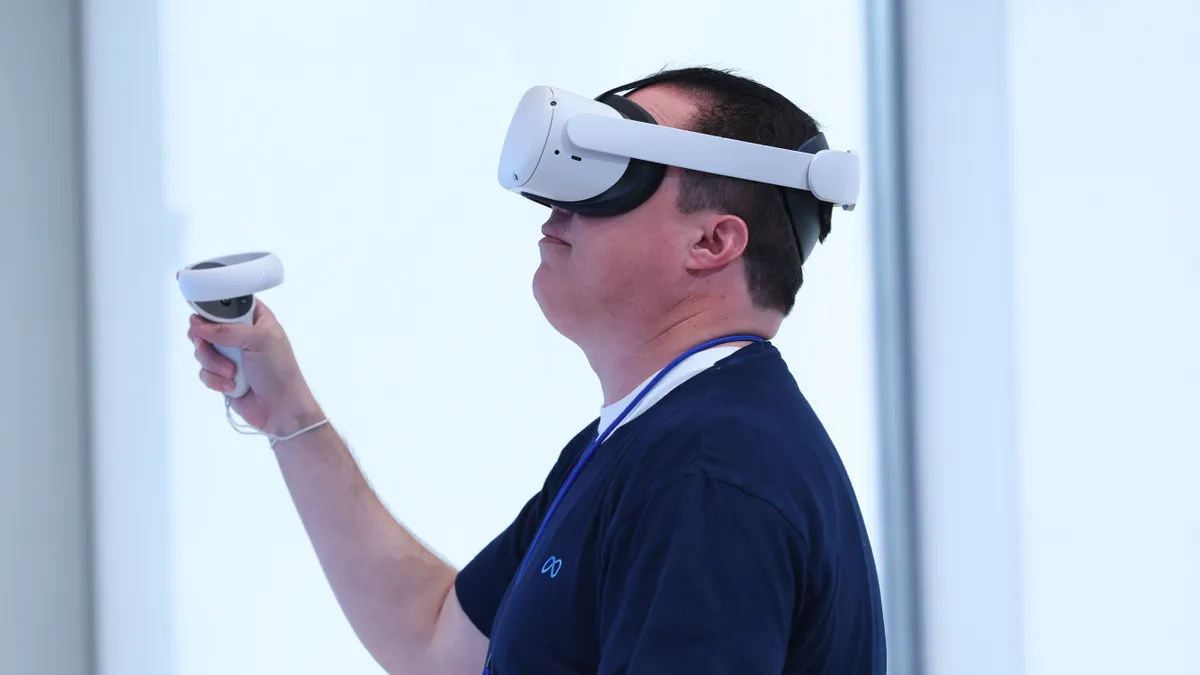As AI takes up enterprise bandwidth, many companies have put the metaverse on hold.
Metaverse technologies piqued executive interest, as technologists probed potential use cases for virtual and augmented reality. But, outside of gaming applications and training scenarios, the metaverse was still a work in progress when generative AI stole the innovation spotlight at the end of last year.
Disney eliminated its small metaverse division amid a wave of 7,000 layoffs, the Wall Street Journal reported Tuesday, the same day Walmart shuttered its branded virtual space in the gaming platform Roblox.
AltspaceVR, a VR platform acquired by Microsoft in 2017, was shut down on March 10.
Meta, the Facebook parent company with its own branded metaverse, is in the midst of a “year of efficiency” characterized by “restructuring plans focused on flattening our orgs, canceling lower priority projects and reducing our hiring rates,” CEO Mark Zuckerberg said in a March 14 letter to employees.
While Meta’s shift won’t immediately shelve metaverse efforts, it's very likely to slow progress.
Forrester predicted a hype-cooling metaverse winter in October, noting that the technology doesn’t really exist yet.
“We’re in a phase of vendors backtracking on their commitments, including big ones like Meta and Microsoft,” J.P. Gownder, VP and principal analyst at Forrester, said.
Scalable use cases will require years of development, Gownder said.
There are training and onboarding applications, remote assistance functions and use cases for technicians pulling up schematics, as well as tools that can be used for knowledge workers. But most applications are narrow in scope, Gownder said.
Moving beyond headsets
Consumer and enterprise appetite for the technology flagged last year, according to market research by IDC.
After two years of steady growth, global shipments of VR headsets hit a wall in 2022, falling 21% year-over-year, according to IDC research. Meta remained the dominant player in the space, with an 80% market share, IDC found.
While the IT consulting firm recently dialed back its projections for VR and AR headset shipments this year, the market is still expected to grow by 14%, reaching 10.1 million units. In 2021, by comparison, sales shot up by over 90%,
“Very few people have a VR headset,” Gownder said.
While companies are capable of investing in more than one emerging technology at a time, generative AI has replaced the VR-based metaverse as the most promising new development for practical deployments.
Companies with limited resources prioritize productivity and efficiency gains, and ChatGPT has more to offer the enterprise in the near-term term than metaverse, Gownder said.
Despite AI ascendency, metaverse technologies are continuing to evolve, Tuong Nguyen, director analyst at Gartner, said. Enthusiasm for VR and AR has died down, he said, but a broader spectrum of immersive technologies, some powered by AI, are developing in digital spaces.
“The metaverse is an evolution of the internet — a general change that’s happening over time,” Nguyen said. “This change will overshadow the less immersive experiences of the prior era.”
Investment in metaverse technology hasn’t disappeared.
Despite macroeconomic uncertainty and sluggish consumer engagement, VC firms and institutional investors haven’t entirely abandoned metaverse-related technologies, according to a January KPMG report.
Three-quarters of investors plan to maintain or increase metaverse investments over the next five years, according to the report. The advisory firm surveyed 300 institutional investors at firms managing $500 million or more in November and December.
“If history is our guide, this next phase of the internet is going to evolve in ways we have not anticipated,” Cliff Justice, U.S. leader of enterprise innovation at KPMG, said in the report.
Broad adoption is years away, Justice acknowledged, but investors are willing to play the long game with the metaverse.














